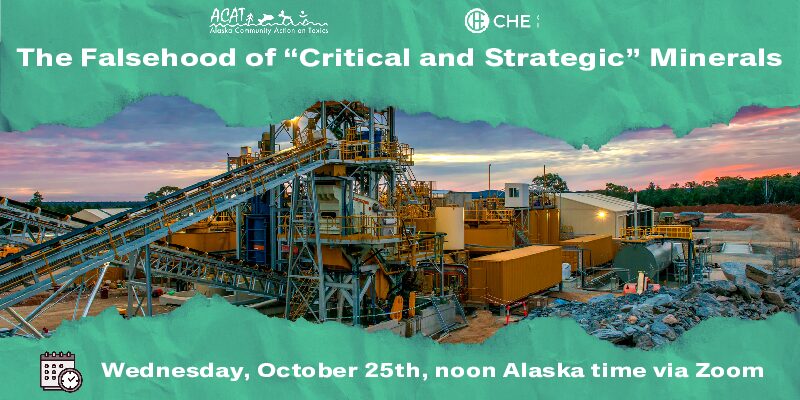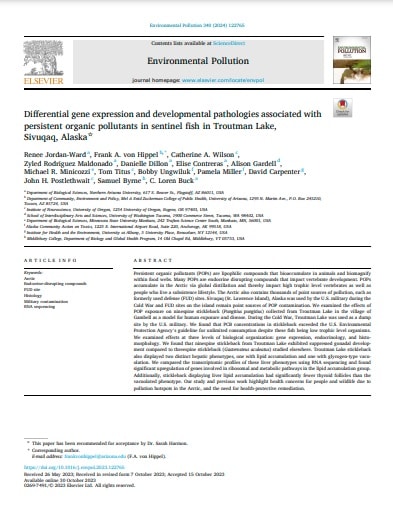Archive for October 2023
EPA Issues Long Overdue Endangerment Finding for Leaded Aviation Gas
Last week, the Environmental Protection Agency (EPA) finally released a complete endangerment finding for lead in aviation gas (avgas) used in piston-engine airplanes, a huge step to ensure Alaskan communities are protected from the nation’s largest source of lead emissions. There is no known safe level of lead for humans. Lead is known to…
Read MoreUnited Nations Expert Committee, Including Representation from Alaska, Recommends Global Bans on Toxic Chemicals
From October 9-13, the Persistent Organic Pollutants Review Committee (POPRC) convened in Rome to review toxic chemicals for global regulation and eventually elimination. The POPRC is the expert scientific committee of the Stockholm Convention on Persistent Organic Pollutants (POPs). The Stockholm Convention is the only legally binding international treaty to eliminate the world’s most…
Read MoreThe Falsehood of “Critical and Strategic” Minerals with Bonnie Gestring and Austin Ahmasuk
According to the Department of Energy, a “critical mineral” is defined as “Any mineral, element, substance, or material designated as critical by the Secretary of the Interior.” However, environmental justice advocates say this definition is the extraction industry’s latest attempt to reduce environmental and community health protections. The label frames dangerous extractive practices as being…
Read MoreDifferential gene expression and developmental pathologies associated with persistent organic pollutants in sentinel fish in Troutman Lake, Sivuqaq, Alaska
Persistent organic pollutants (POPs) are lipophilic compounds that bioaccumulate in animals and biomagnify within food webs. Many POPs are endocrine disrupting compounds that impact vertebrate development. POPs accumulate in the Arctic via global distillation and thereby impact high trophic level vertebrates as well as people who live a subsistence lifestyle. The Arctic also contains thousands of point…
Read More


